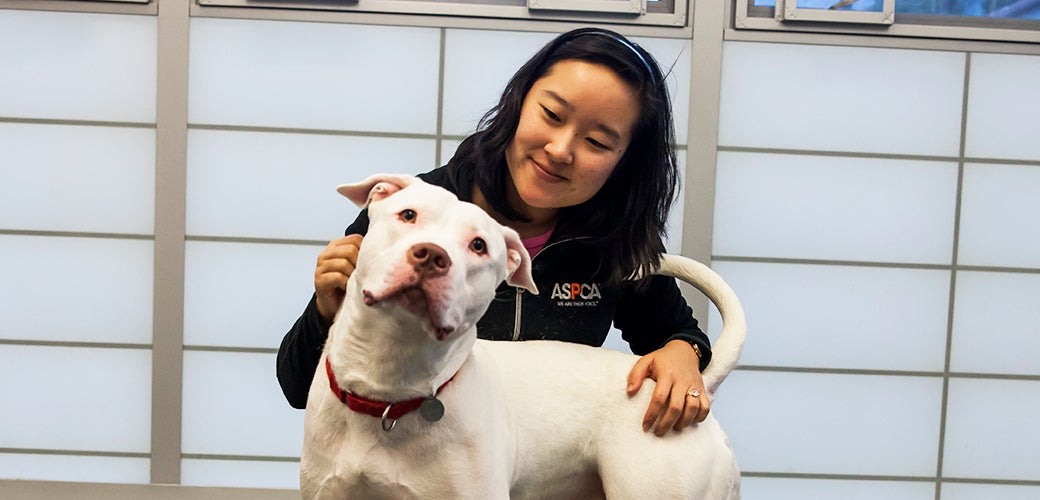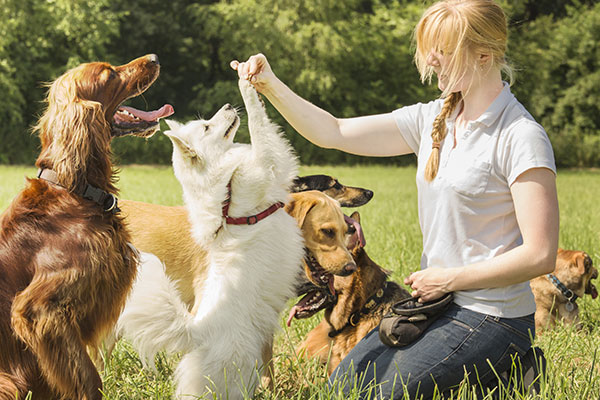Top strategies for hiring a cat behaviourist near me
Wiki Article
Recognizing the Duty of a Vet Behaviourist in Pet Dog Training and Wellness
The role of a vet behaviourist is essential in addressing the intricate partnership between pets and their proprietors. They integrate veterinary medicine with insights from pet behavior scientific research to deal with concerns like aggressiveness and anxiety. Unlike conventional fitness instructors, their strategy concentrates on the underlying root causes of these behaviors. This nuanced point of view questions regarding the efficiency of standard training methods and exactly how a much deeper understanding can change pet well-being. What methods do they employ to attain these results?What Is a Vet Behaviourist?
A veterinary behaviourist is a specific professional who concentrates on understanding and attending to the behavior issues of pets, particularly family pets. Their know-how combines vet medication and animal habits scientific research, enabling them to diagnose and deal with a vast range of behavioral troubles - board certified veterinary behaviourist. These specialists frequently hold sophisticated levels, such as a Master's or PhD in animal behavior, and are accredited by pertinent companies, ensuring they possess a deep understanding of animal psychologyVet behaviourists analyze animals through in-depth monitoring and analysis, thinking about aspects such as genes, setting, and training history. They develop customized therapy plans, which may consist of desensitization methods, favorable support methods, and environmental modifications. Cooperation with family pet proprietors is important, as they give assistance and assistance throughout the training process. Inevitably, the objective of a veterinary behaviourist is to enhance the well-being of the pet while promoting an unified connection in between animals and their owners.
The Relevance of Recognizing Pet Actions
Comprehending pet actions is essential for both animal proprietors and professionals in the field of pet care, as it lays the structure for reliable communication and training. Acknowledging just how animals regard their setting and react to stimuli enables caretakers to create a much more harmonious living situation. Insight into behavioral hints, such as body movement and articulations, promotes more powerful bonds in between pets and their proprietors. By appreciating the natural reactions and needs of various types, people can customize their training approaches to suit these aspects, advertising better knowing and participation. Additionally, a strong grasp of behavior science help in determining stress factors and potential triggers, enabling proactive interventions. On the whole, recognizing pet behavior not only enhances the well-being of animals yet likewise enhances the experiences of those who look after them, eventually bring about healthier, better relationships.Typical Behavioral Issues Addressed by Vet Behaviourists
Veterinary behaviourists frequently address usual behavioral issues in family pets, including aggression and fear feedbacks. They also concentrate on anxiety and stress and anxiety monitoring, which can significantly affect an animal's wellness. Recognizing these problems is necessary for creating efficient training and treatment techniques.Aggressiveness and Concern Actions
While many pet proprietors may view aggressiveness and fear feedbacks as straightforward behavior problems, these complicated responses usually stem from underlying anxiety or previous trauma. Veterinary behaviourists play a necessary function in determining the root triggers of these actions, which can show up in different types, consisting of growling, biting, or excessive concern of specific situations. Recognizing these triggers is crucial for developing reliable training strategies tailored per animal's distinct situations. Behaviourists utilize methods such as desensitization and counter-conditioning to assist animals handle their fears and aggressiveness. Furthermore, they enlighten animal proprietors regarding proper monitoring techniques, highlighting the relevance of patience and uniformity. Addressing hostility and anxiety reactions not just enhances the animal's lifestyle but also reinforces the bond in between animal and owner.Anxiousness and Stress Management
Anxiousness and tension prevail issues that several family pets deal with, typically resulting from adjustments in their environment, absence of socializing, or previous negative experiences. Vet behaviourists play a crucial role in recognizing the underlying sources of these issues. They utilize various strategies, including behavioral adjustment, desensitization, and counter-conditioning, to help pet dogs handle anxiousness. In enhancement, they may suggest environmental modifications, such as creating secure spaces or giving enrichment activities that advertise relaxation. Cooperation with pet proprietors is important, as behaviourists lead them in comprehending their pet's signals and carrying out effective coping methods. By addressing anxiousness and stress, veterinary behaviourists add significantly to boosting the overall wellness and quality of life for pets and their households.Just How Veterinary Behaviourists Differ From Standard Instructors
Veterinary behaviourists differ from standard instructors mainly in their instructional backgrounds and training. While standard fitness instructors commonly concentrate on obedience and standard commands, vet behaviourists emphasize understanding and resolving underlying behavior issues, integrating medical factors to consider right into their strategy. This distinctive emphasis enables them recommended you read to supply an extra comprehensive therapy for animals with complex behavior difficulties.Education and Training Distinctions
Recognizing the difference in between vet behaviourists and typical trainers is essential for family pet proprietors seeking reliable training solutions. Veterinary behaviourists possess sophisticated levels in veterinary medication, frequently followed by specialized training in animal behavior. This education furnishes them to resolve intricate behavioral concerns that might originate from clinical problems or emotional aspects. In contrast, conventional trainers generally have accreditations from training programs that concentrate on obedience and fundamental commands without diving into the underlying psychological or medical aspects. While both specialists intend to boost family pet behavior, vet behaviourists can diagnose and treat behavioral troubles holistically, incorporating medical understanding into training methods. This crucial difference highlights the significance of choosing the ideal specialist based upon the pet's specific needs.Focus on Behavioral Issues
Addressing behavioural issues calls for a nuanced method that differentiates veterinary behaviourists from traditional fitness instructors. While typical instructors frequently focus on obedience and basic commands, vet behaviourists explore deeper into the underlying reasons of troublesome behaviors. They employ a comprehensive understanding of animal psychology and habits modification techniques, which are rooted in clinical study. This know-how enables them to determine concerns stemming from stress and anxiety, anxiety, or hostility, rather than merely addressing surface-level signs and symptoms. On top of that, veterinary behaviourists examine the pet's overall health, considering environmental factors and the pet's background. By incorporating clinical understanding with behavioural approaches, they supply customized solutions that advertise long-term behavioral modification, making sure both the family pet's and proprietor's lifestyle are considerably improved.Clinical Considerations Consisted Of
While conventional trainers might overlook hidden medical problems, veterinary behaviourists focus on a detailed evaluation of a pet dog's health and wellness as a fundamental action in addressing behavioral troubles. This approach permits them to determine potential medical problems that may add to unwanted practices, such as anxiousness, pain, or neurological conditions. By incorporating clinical assessments into their method, veterinary behaviourists can work together with vets to ensure a holistic understanding of the pet dog's wellness. In addition, they can advise appropriate treatments or changes to training strategies based upon medical searchings for. This extensive point of view distinguishes vet behaviourists from typical trainers, as they deal with both behavioural and health-related aspects, eventually causing much more efficient and sustainable results for animals and their owners.
The Process of Dealing With a Vet Behaviourist
Working together with a vet behaviourist involves an organized approach to attending to a pet's behavioral concerns. The process starts with an extensive assessment, where the behaviourist collects thorough information about the animal's background, setting, and specific behaviors that are troublesome. This commonly consists of questionnaires, interviews with the animal owner, and often monitorings of the pet dog in its environment.Following the assessment, the veterinary behaviourist more formulates a tailored intervention plan that may include behavioral adjustment methods, training methods, and, if needed, suggestions for clinical examinations. board certified veterinary behaviourist. The plan is developed to be useful and achievable, ensuring that it fits perfectly into the pet proprietor's way of living
Subsequent follow-up sessions are important to monitor progression, readjust techniques, and provide assistance. This collective initiative not just aims to change unwanted behaviors yet likewise to enhance the total well-being of the pet dog, ensuring a harmonious relationship between the pet dog and its proprietor.
Enhancing Your Family pet's Top quality of Life Through Behavioral Support
Enhancing an animal's lifestyle with behavioral support is vital for cultivating a healthy and balanced and satisfying relationship between pet dogs and their owners (cat behaviourist near me). Veterinary behaviourists play an important function in recognizing and dealing with behavior issues that may impede an animal's wellness. With customized techniques, they aid alleviate anxiety, anxiety, and hostility, eventually advertising a more balanced and happy petBehavioral support encompasses various methods, consisting of favorable reinforcement, ecological enrichment, and socialization. By executing these techniques, proprietors can produce a nurturing setting that motivates favorable actions. This not just enhances the animal's emotional health and wellness however additionally reinforces the bond in between pet and owner.
Additionally, regular examinations with a vet behaviourist assurance that any kind of arising behavior problems are without delay resolved, preventing escalation. Overall, purchasing behavior assistance is an aggressive strategy that substantially improves a pet dog's life, bring about enhanced physical and psychological health and wellness results.
Frequently Asked Questions
What Qualifications Do Vet Behaviourists Have?
Veterinary behaviourists generally hold a veterinary degree, adhered to by specialized training in pet habits. Numerous also possess qualifications from identified organizations, demonstrating their knowledge in dealing with pet actions problems and promoting total animal well-being.Can Vet Behaviourists Recommend Medication for Pets?


Veterinary behaviourists, possessing veterinary levels and specialized training, can certainly suggest drug for animals. This capability permits them to address underlying behavior problems efficiently, frequently combining medicinal treatment with behavior alteration techniques for ideal outcomes.
For How Long Does Behavior Modification Normally Take?
Behavioral therapy duration differs considerably, commonly varying from a couple of weeks to numerous months. Variables affecting this timeline consist of the pet dog's certain problems, consistency of training, and the owner's involvement while doing so.Are Remote Consultations Offered With Veterinary Behaviourists?

Exactly how Much Does a Veterinary Behaviourist Appointment Expense?
The cost of a vet behaviourist assessment generally varies from $100 to $300, depending upon factors such as area, experience, and session length. Added charges might look for follow-up consultations or specialized solutions.Report this wiki page